austinbar.org
DECEMBER 2024/JANUARY 2025 | VOLUME 33, NUMBER 10

DECEMBER 2024/JANUARY 2025 | VOLUME 33, NUMBER 10
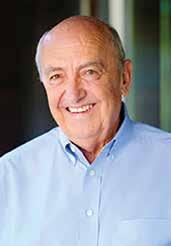



David Armbrust, Denise Davis, and Thomas R. Phillips have been named the Austin Bar’s 2025 Distinguished Lawyers, and Austin Kaplan has been named the recipient of the David H. Walter Community Excellence Award.
David Armbrust
Armbrust & Brown
David Armbrust has practiced law in Austin for approximately 48 years. He has been involved in numerous business, real estate, environmental, and public policy issues in the Central Texas area. He presently serves on the Board of the Central Texas
Regional Mobility Authority. He is a former president of the Real Estate Council of Austin, former director of the Austin Chamber of Commerce, Austin Association of Builders, Austin Convention and Visitors Bureau, and Colorado River Foundation.
David has been listed in The Best Lawyers in America every year since 1983 and has been recognized by Texas Monthly magazine as a “Super Lawyer.”
He has received the City of Austin’s Distinguished Award for Community Service, been named “Best in Business – Real Estate” by Austin Business Journal, and received the W. Neal Kocurek Commercial Real Estate Lifetime
Achievement Award.
He is a full member of the Urban Land Institute and was actively involved in the Balcones Canyonlands Conservation Plan.
David served as a founding member and then director/president of Hill Country Conservancy, a coalition of environmental and business leaders dedicated to preserving the environment through land conservation. He also served as a director on the Brackenridge Hospital Development Council and Greater Austin Economic Development Corporation.
David was recognized by the Austin Business Journal in 2023 and 2024 as one of the most influential people in Central Texas.
Denise Davis
Davis & Kaufman
Denise Davis is a native Texan with over 20 years of experience working with members of the Texas Legislature. In addition to lobbying, she has extensive experience in developing and implementing legislative strategy, providing
procedural and parliamentary advice (House and Senate rules), and in drafting complex legislation, administrative rules, legal memoranda, and briefs for clients in both the public and private sectors.
Before founding Davis Kaufman PLLC with Lisa Kaufman in 2012, Denise served for over two years as chief of staff to Texas House Speaker Joe R. Straus. Prior to that, Denise served several sessions as House parliamentarian and special counsel to the Texas House of Representatives.
Her public service also includes work as general counsel to Lt. Governor William “Bill” Ratliff; director and counsel to the Texas Judicial Council under then-Chief Justice Thomas R. Phillips; general counsel to the Senate Jurisprudence Committee under Sen. Rodney Ellis; legislative counsel for the Texas Legislative Council; and assistant public information/ press officer for Lt. Governor William P. Hobby.
Trusted by 50,000 law firms, LawPay is a simple, secure solution that allows you to easily accept credit and eCheck payments online, in person, or through your favorite practice management tools.





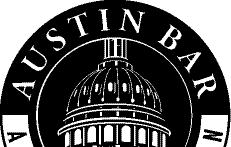

Join the DEI Committee for a thought-provoking discussion about the nonfiction book Solito: A Memoir, the immigration experience, and the power of storytelling in shaping public perception and policy. The bookclub will meet Friday, Dec. 13, from 12 - 1 p.m. at Hilgers House, 712 W. 16th. St. RSVP on austinbar.org.


austinbar.org
EMAIL billy@austinbar.org
Austin Bar Association 712 W. 16th Street Austin, TX 78701
Austin Bar app available for iPhone and Android.
SOCIAL

FOLLOW instagram.com/theaustinbar
CONNECT https://www.linkedin.com/ company/austin-barassociation
FOLLOW twitter.com/theaustinbar WATCH vimeo.com/austinbar
24-Hour Suicide & Crisis Lifeline - 988 - call or text | Live chat: SuicidePreventionLifeline.org
Texas Lawyers’ Assistance Program (TLAP) - 1-800-343-8527
TLAP is a 24-hour confidential crisis counseling and referral program to help lawyers, law students, and judges with substance use and mental health issues.
Justice Mack Kidd Fund
The Austin Bar Foundation administers the Justice Mack Kidd Fund, which can provide financial assistance to individuals seeking treatment for depression or similar illnesses. Visit austinbar.org/?pg=justice-mack-kidd-fund to learn more.
Personal Crisis Assistance Program (PCAP)
The Austin Young Lawyers Association Foundation provides grants and/or peer support for individuals suffering from a personal crisis.
Contact Debbie Kelly: 512-472-0279 x 105
Sheeran-Crowley Trust
Administered through TLAP, the trust provides financial help to Texas attorneys, judges, and law students who need treatment for substance use, depression, and other mental health issues. Visit sheerancrowley. org to learn more.
Alcohol & Drug Abuse
Austin Drug & Alcohol Abuse Program - 512-454-8180
Alcoholics Anonymous - 512-444-0071
Cocaine Anonymous - 512-479-9327
Narcotics Anonymous Counseling - 512-480-0004
Psychiatric Emergencies
Emergency Screening in a Psychiatric Crisis 24/7 - 512-472-4357
Samaritan Center (provides professional counseling services on a sliding scale) - 512-451-7337

AUSTIN BAR ASSOCIATION
Mary-Ellen King President
Maitreya Tomlinson President-Elect
Judge Maya Guerra Gamble Secretary
Rob Frazer Treasurer
Justice Chari Kelly Immediate Past President
AUSTIN YOUNG LAWYERS ASSOCIATION
Emily Morris President
Jenna Malsbary President-Elect
Gracie Wood Shepherd Treasurer
Lena Proft Secretary
Sarah Harp Immediate Past President
Austin Lawyer
©2024 Austin Bar Association; Austin Young Lawyers Association
EXECUTIVE OFFICES
712 W. 16th Street
Austin, TX 78701
Email: austinbar@austinbar.org
Website: austinbar.org
Ph: 512.472.0279
DeLaine Ward Executive Director
Debbie Kelly Associate Executive Director
Roslyn Dubberstein Assistant Editor
Samantha McCoy Assistant Editor
Abigail Ventress Assistant Editor
Billy Huntsman Managing Editor
Austin Lawyer (ISSN #10710353) is published monthly, except for July/August and December/January, at the annual rate of $10 membership dues by the Austin Bar Association and the Austin Young Lawyers Association, 712 W. 16th Street, Austin, TX 78701. Periodicals Postage Paid at Austin, Texas. POSTMASTER: Send address changes to Austin Lawyer, 712 W. 16th Street, Austin, TX 78701.
Austin Lawyer is an award-winning newsletter published 10 times a year for members of the Austin Bar Association. Its focus is on Austin Bar activities, policies, and decisions of the Austin Bar board of directors; legislation affecting Austin attorneys; and other issues impacting lawyers and the legal professionals. It also includes information on decisions from the U.S. District Court for the Western District of Texas and the Texas Third Court of Appeals; CLE opportunities; members’ and committees’ accomplishments; and various community and association activities.
The views, opinions, and content expressed in this publication are those of the author(s) or advertiser(s) and do not necessarily reflect the views or opinions of the Austin Bar Association membership, Austin Bar Association board of directors, or Austin Bar Association staff. As a matter of policy, the Austin Bar Association does not endorse any products, services, or programs, and any advertisement in this publication should not be construed as such an endorsement.
Contributions to Austin Lawyer are welcome, but the right is reserved to select and edit materials to be published. Please send all correspondence to the address listed above. For editorial guidelines, visit austinbar.org in the “About Us” tab.
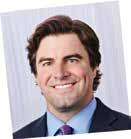













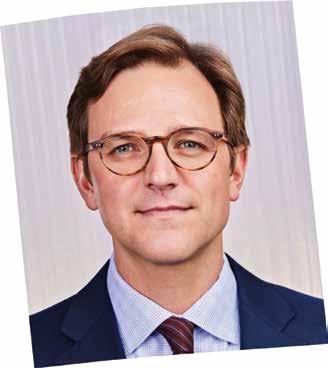


BY ZOE TAYLOR
This is what I know: Depression lies. Depression will tell you that you aren’t successful, that you don’t deserve what you have. That you aren’t a good partner, parent, child, or friend.
Depression holds you hostage. It isolates you and warps your reality. It distances you from those who love you and whispers words of shame, doubt, and derision. It wrecks your self-confidence, your self-worth, and your relationships. I say all this as a person lucky enough to have never suffered from the disease. But I loved someone who did. And it killed him.
Trevor was 47 years old when he died. He had a successful law practice, two wonderful children and a loving family, many friends and interests. He was smart, funny, and kind. He loved being a trial lawyer, was passionate about his cases and his clients, and was really good at it.
But depression told him he wasn’t any of these things. That he was a failure. That he wasn’t successful. That his family would be better off without him. These were all lies. But the incessant internal chatter of depression, of shame, doubt, and derision, drowned out the love and accolades. It made him deaf to the love
and life around him.
Trevor had been through major depressive episodes before. He had been successful with therapy and medication. He knew the tools to manage his disease and had done so several times. He even reached out to other lawyers who were in crisis to offer support. But he never talked about wanting to die. When depression hit him hard again towards the end of 2016, I thought he had time to start treatment again. I had no idea that this time the lie that depression was whispering to him was that death was the only way out.
Trevor died by suicide on January 23, 2017. It started out like any other day–letting the dog out, taking the trash and recycling to the curb, making breakfast and lunches for the kids, and getting off to school and the office. It ended in tragedy.
You know the statistics. You‘ll have read them in this very journal. Depression and suicidal ideation is unfortunately all too common to the legal profession. According to a Psychology Today article this summer, the number of lawyers suffering from mental health issues comes close to or exceeds a quarter of our profession: 28 percent reported depression, 19 percent reported anxiety and 23 percent reported stress. The

number of lawyers who have contemplated suicide is more than double the general population. And that’s just the numbers reported. From lawyers willing to talk about their issues and their weaknesses.
It’s not easy writing or talking about this. But I believe in the mission the Austin Bar has adopted this year to stop the stigma, and I’m so impressed with the others who have already stepped forward to share their stories.
I was so touched that the ABA chose to walk in honor of Trevor and Aspen Dunaway in the Out of the Darkness Walk hosted by the American Foundation for Suicide Prevention. I miss Trevor every day and am grateful for the remembrance.
The legal profession does not honor vulnerability. Because it’s a sign of weakness and of failure. And, for whatever reason, mental illnesses are viewed differently than other diseases. They’re still often seen as a weakness, instead of a genuine disease, a condition brought on by any number of factors including environment and genetics. But the strength that it requires to live with depression or anxiety is immense. The mental energy required to just get through a day can be exhausting. But if we can chip away at the stigma and allow our fellow lawyers to

Taylor
be vulnerable without judgment, I hope others can open up and reach out for help. Because it’s not a weakness. It’s just a disease like any other, and there is treatment and hope.
Depression robbed Trevor of hope. Please don’t let it rob you or someone you love. Reach out. Have a safety plan–someone who can just be with you to keep you safe. Until you can start treatment again. Because there is always hope. AL
Zoe Taylor is a graduate of UT Law and currently serves as the director of legislative affairs for the Texas Trial Lawyers Association.

Denise has extensive experience advising on ethics and on legal and parliamentary matters relating to the Texas House of Representatives, including points of order, House Rules and precedent, and open records. She has also drafted complex floor amendments, litigation, and policies. She has lobbied extensively for several sessions before all of the House and Senate committees who have jurisdiction over public retirement and pension issues.
In addition to her many years in public service, Denise has also worked in private practice, serving as special counsel to the corporate department of Baker Botts, where she provided public policy law and governmental relations services to corporate clients in the energy, financial, and health care industries.
Denise received her Bachelor of Arts in government from The University of Texas at Austin and her law degree from UT Law. While in law school, Denise served as notes editor for the American Journal of Criminal Law
Denise currently serves on the executive committee of the Greater Austin Chamber of Commerce (chair of the State and Federal Legislative Affairs Committee), the Mission Capital Board of Directors (chair), the KLRU-PBS Board of Directors (chair of the Education Committee), and the Board of Directors of Social Venture Partners. She is also a member of Alpha Kappa Alpha Sorority, Incorporated and The Links, Incorporated.
Thomas R. Phillips
Baker Botts
Tom Phillips was appointed chief justice of the Texas Supreme Court by former Gov. William P. “Bill” Clements in November 1987. Tom was then elected to that position in November 1988 and another three times after that—in 1990, 1996, and 2002.
As chief justice, Tom chaired both the Texas Judicial Council and Texas Judicial Districts Board. He also served as president of the Harvard Law School Association of Texas and on several boards and committees at Baylor University.
Tom is a past president of the National Conference of Chief Justices and past chair of the Board of Directors of the National Center for State Courts. He is a member of the American Law Institute and serves as an adviser to its Federal Judicial Code project.
From 1989 to 1996, he served on the Federal-State Jurisdiction Committee of the Judicial Conference of the United States. He is a director of the American Judicature Society, is a member of both the Philosophical Society of Texas and the Houston Philosophical Society and is on the board of the Southwestern Legal Foundation.
In 1992, Tom received the Texas Chamber of Commerce Award of Excellence in Government. He also has received the Outstanding Texas Leader Award from the John Ben Sheppard Public Leadership Forum, and the Houston Outstanding Young Lawyer Award from the Houston Young Lawyers Association. In 1997, he was awarded an honor-
ary L.L.D. from Texas Tech University and, in 1998, was named a Distinguished Alumnus of Baylor University. In 1999, he was honored with a Distinguished Service Award from the National Center for State Courts.
In September 2004, Tom retired from the court. In September 2005, Tom joined the Austin office of Baker Botts. His practice concentrates on issues and appeals, with a particular emphasis on matters that are in or headed to the Supreme Court or state courts of appeals.
Austin Kaplan Kaplan Law Firm
Austin Kaplan is the founder and managing attorney of the Kaplan Law Firm. Austin is an employment law and civil rights attorney and litigator serving clients in Austin, Texas, and surrounding communities. Austin represents individuals in a wide range of employment and civil rights matters, including claims for breach of employment contract, breach of noncompete agreements, discrimination, overtime violations, wage and hour violations, whistleblower retaliation, FMLA violations, and marriage equality matters.
Austin spends most of his days litigating cases for the Firm’s clients in state and federal court.
Austin defends people who are sued for misappropriation of trade secrets, violations of non-competes (non-competition, non-solicitation, or no-hire agreements), and other contract mat-
ters by their former employers, or by other entities.
Austin regularly provides advice to employees about their employment rights, what their options are at work, and how to negotiate a fair severance.
Austin has been named a 2024 Super Lawyer in employment and labor law. He is a former president of the Austin Young Lawyers Association (AYLA). He is a fellow of the Texas Bar Foundation, cochair of the Austin Capital Area Plaintiffs Employment Law Association, former chair of the City of Austin’s Ethics and Review Commission, and a member of the Capital Area Trial Lawyers Association, the Texas Trial Lawyers Association, the Board of Directors of the Central Texas Anti-Defamation League, the Texas Bar College, and the Anti-Fraud Coalition.
He is admitted to practice in all four U.S. District Courts in Texas, as well as the Northern and Central District Courts in Illinois.
He is a graduate of American University and earned his law degree from the University of Illinois College of Law, where he was also the recipient of the Rickert Award in Pro Bono Service. AL

The Austin Bar welcomes the following new members:
Yasmeen Aboellhasan
Bobby Acevski
Summer Bentinck
Jordan Bernard
Kristen Berrier
Austin Chegini
Ella Cornwall
Jade Davis
Amber Dean
Christian Del Castillo
Amaris Diaz
Santiago Diaz
Joseph Doke
Hannah Dorsett
Connor Drysdale
Jenene Ebstein
Lorelei Evans
Mary Folse
Kennedy Gerard
Christianna Goldman
Joseph Gromatzky
Alexander Hasselman
Aidan Henderson
Christian Henricksen
Tyler Hoellwarth
Erin Johnson
Trey Kilbride
J. Patrick Landon
Marissa Lara-Arebalo
Denise Le
Valeria Lozano-Muncy
Michael Luke
Matthew Malerich
Stephen Malish
Molly McNamara
Ryan O’Dell
Catherine Ogbonnaya
Heliana Onomo
Alan Pate
Jonathan Pillischer
Brittany Posadas
Helene Pruitt
Samuel Reno
Kevin Roberts
Farheen Roche
Konnor Rodriguez
Christopher Ross
Rachel Sechelski
Gabriel Segovia
Sydney Sgovio
Timothy Shyu
Priyadarshini Subramanian
Natalia Tsokos
Ebee Ward
Alison Welch
Rebekah Wesney
Katherine West










Congratulations to Jennifer Banda, who has been hired as the new executive director of the Center for Women in Law at UT Law. Jennifer has more than 25 years’ experience in state and federal government relations and was most recently senior vice president for advocacy and public policy at the Texas Hospital Association. She is a graduate of UT Law.
Congratulations to Cathy Garza, who has joined Jackson Walker’s Austin office as a partner in its Electric Regulatory practice. Cathy’s experience includes extensive experience advising clients in the electricity sector, including investor-owned utilities, power-generation companies, retail electric providers, and developers, as well as on regulatory and commercial litigation and compliance issues. She is a graduate of UT Law.
KUDOS
Congratulations to the following attorneys, who were among those named by Texas Lawyer as “Lawyer of the Year” in their respective practice fields in and around Austin:
Eric A. Groten
Litigation Environmental
Eric is a senior partner in Vinson & Elkins’ environmental and natural resources practice group. His practice specifically focuses on state and federal air quality laws, and Eric is an accomplished Clean Air Act practitioner. He is a graduate of UT Law.
Stacey A. Martinez
Litigation – Health Care
Stacey is Norton Rose Fulbright’s chief operating officer for the United States, based out of the Austin office. She previously served as the firm’s global co-head of life sciences and healthcare and, before that, as the Austin office’s partner-in-charge. Her practice focuses on product liability and class actions, including pharmaceutical and medical-device matters and cases involving exposure to toxic substances. She is a graduate of St Mary’s Law School.
Paul Parsons
Immigration & Nationality Law
Paul previously served as an elected member of the Board of Governors of the American Immigration Lawyers Association (AILA) and as chair of the Texas/ Oklahoma/New Mexico chapter of AILA. He’s also a recipient of AILA’s Pro Bono Award for his efforts to provide immigration representation to those unable to afford counsel. Paul is a graduate of UT Law.
Steven J. Pollinger
Litigation – Intellectual Property
Steven is the principal at McKool Smith’s Austin office and has more than 30 years litigating patent and intellectual property cases. Steven practices at trial and on appeal nationwide and has courtroom victories involving diverse software, electronics, and medical-device technologies. He is a graduate of the University of Washington School of Law.
Catherine Robb
Litigation – First Amendment
Catherine is counsel in the business litigation practice group in Haynes and Boone’s Austin office, where she primarily represents clients in the broadcast industry. Her diverse client roster includes online and traditional news organizations, magazines, radio and broadcasters, cable television stations, production companies, and music entities. She is a graduate of UT Law.
Matthew C. Ryan
Litigation – Construction
Matthew is a partner at Allensworth, where his practice specifically focuses on architects, engineers, and landscape architects. His representative experience includes handling professional licensing issues, defending against claims of defective design or construction, and clients’ affirmative claims for relief. He is a graduate of UT Law.
Jason S. Scott
Litigation – Trust and Estates
Jason is a partner at Osborne, Helman, Scott, Knisely & Stanton. His practice focuses on fiduciary litigation, including trust, estate, partnership, and guardianship disputes, representing parties on both sides of the docket. He is a graduate of UT Law and also earned his LLM from the University of Edinburgh’s School of Law.
Peter A. Stokes
Litigation – Securities
Peter is a partner at Norton Rose Fulbright, where his practice focuses on representing clients in securities lawsuits, SEC enforcement matters, internal investigations, corporate governance matters, and complex commercial litigation and appellate matters. He is a graduate of Harvard Law School. AL

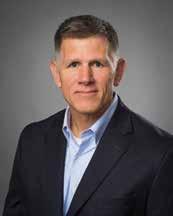

In election years and otherwise, it seems every other day can bring something new to be stressed and despair over when reading or watching the news. When the world feels like it is spiraling out of control and we don’t know what to do in response, it can
BY EMILY MORRIS, AYLA PRESIDENT
be easy to feel like our actions don’t really matter and freeze.
When those frozen and helpless feelings come up, it can be helpful to sit with them, examine them, and then think of small steps we can take to improve our community. This can be something basic like taking care of yourself, your family, and your neighborhood.
AYLA and the Austin Bar provide lots of opportunities to make our city a better place and make meaningful connections. Please make plans to join fellow AYLA members in wrapping gifts for Partnerships for Children on Sunday, Dec. 8, and volunteer at nonprofits all over town during our MLK Day

of Service on Monday, Jan. 20.
The Planning Committee does a great job of identifying all kinds of service opportunities that will fit nearly any ability, so be on the lookout for the signup link and see what works for you! These volunteer days may not bring sweeping changes at a systemic level, but they can be building blocks toward something lasting and good: gifts for a child who may not feel loved, books that can inspire a new skill and future for an incarcerated person, or a blood donation for someone in need.
We each have the power to make a positive impact with our daily choices. As members of the legal
community, we have a duty to help people who are less fortunate.
As we enter the holiday season and look ahead to a new year, I encourage each of us to seek out opportunities to do something kind, give the benefit of the doubt when possible, and ask questions when we encounter someone who may think differently than we do.
Connection can open windows for change in people who may otherwise be closed off. I hope you can each prioritize taking time for yourself and your families to rest and enjoy special moments together and head into 2025 ready to continue showing up for our community.
Happy Holidays! AL
AYLA’s 15th Annual MLK Day of Service
Each year, in honor of Dr. Martin Luther King, Jr., AYLA coordinates a Day of Service for its members to participate in several community service events and donation drives throughout Austin. The 15th annual MLK Day of Service will take place on Monday, January 20, 2025. This local project is modeled after the national MLK Day of Service, which is intended to transform Dr. King’s life and teachings into community service that helps solve social problems. AYLA invites the Austin legal community to gather friends and family and sign up for an event or provide donated items.
Mark your calendars and keep an eye out for more information, including a list of volunteer organizatons and types of donations that will be collected at Hilgers House. AL
THURSDAY, DEC. 12
Docket Call 5:30 - 7 p.m.
Whiskey Tango Foxtrot 1501 E. 7th St.
THURSDAY, JAN. 16
Docket Call 5:30 - 7 p.m.
Location: TBD
AYLA’s 8th Annual Tailgate for a Cause fundraiser was a great success. For this year’s holiday event, AYLA will be partnering with Partnerships for Children for their Holiday Wishes Program. The tailgate was a great success and helped raise money to provide holiday cheer to families who might not otherwise have the opportunity. AL


Sponsored by Norton Rose Fulbright
On Saturday, November 16, the AYLA Health & Wellness Committee organized a cycle class at RIDE Downtown. The class was an awesome opportunity for Austin attorneys to unwind and get to know each other outside of the office or courtroom. The Health & Wellness Committee is focused on facilitating lawyer well-being through regular activities like group exercise. Huge thanks to Norton Rose Fulbright for their sponsorship of this event! AL


AYLA recently completed production on its series of tutorial videos meant to educate members of the public on how to pick juries without a lawyer in justice of the peace and municipal courts. These videos were made possible by a grant from the Texas Bar Foundation and with the help of Judge Sylvia Holmes, Justice of the Peace, Precinct 3.
“The purpose of this project is to expand access to justice for unrepresented litigants,” said Christopher Bates, president of the Justices of the Peace and Constables Association of Texas (JPCA).
“Justice courts are routinely utilized by non-attorneys to seek redress in civil matters up to $20,000, class C criminal citations, and for all evictions regardless of amount.”
The series is available on Travis County’s YouTube page. Each video focuses on how to pick a jury for a different common legal matter–car wrecks, instances of negligence, eviction, violations of personal property, and breach of contract.
Now that the videos have been produced, Texas’ 1,200+ justice courts and hundreds of municipal courts will help spread the word about the videos to the general public. The Texas Justice Court Training Center at Texas State University and JPCA will also help distribute the videos to the public.
AYLA sincerely thanks director, camera operator, and editor Austin McElroy; camera operator Scott Elbrecht; D’Z Keys for providing music; Judge Sylvia Holmes; Travis County; and the Texas Bar Foundation for its generous grant.
Since its inception in 1965, the Texas Bar Foundation has awarded more than $26 million in grants to law-related programs. Supported by members of the State Bar of Texas, the Texas Bar Foundation is the nation’s largest charitably-funded bar foundation. AL

Tell us a little bit about yourself and your law practice.
I am an Associate at Cornell Smith Mierl Brutocao Burton, LLP, where I practice management-side labor and employment law. My practice encompasses all facets, including litigation, advising, and disputes before government agencies. I grew up in Austin and had the great opportunity to return to Austin af-
ter graduating from UVA Law to clerk for U.S. Magistrate Judge Andy Austin. After my clerkship, I joined Bowman and Brooke, LLP, where I practiced product liability defense. I joined Cornell Smith Mierl Brutocao Burton, LLP in 2018.
How long have you been involved in AYLA, and what has been your best AYLA experience so far?
I have been involved with AYLA since 2021, when I participated in the Leadership Academy. My best experience is my involvement with the Leadership Academy, both as a participant and later serving on the committee. I have made some great connections through my experience, and each year, it is really rewarding to see
ideas from the Leadership Academy come to fruition. I will be co-chairing the Leadership Academy for this upcoming year and am looking forward to it!
What was your childhood dream job?
I think my childhood dream job would have to be an airline pilot. As a little kid, pilots really seemed like they possessed superpowers in knowing how to fly airplanes. I think that dream has manifested itself in my love of travel as I got older. My next goal destination is South America.
What are some of things you enjoy most about living in Austin?
One of the positive things about Austin’s growth in my opinion is the continuously changing
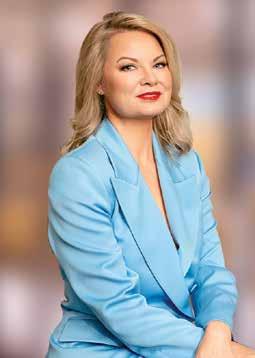

food/restaurant scene. I love being able to try new places around town on a consistent basis and am always on the lookout for new suggestions!
What’s your best piece of advice for fellow young attorneys?
Ask questions! The questions can be about anything, from substantive legal issues to how to get involved with professional organizations like the Austin Bar/ AYLA. I think staying genuinely curious about all aspects of law practice can yield many benefits down the road as young attorneys continue to develop their expertise and practice. AL

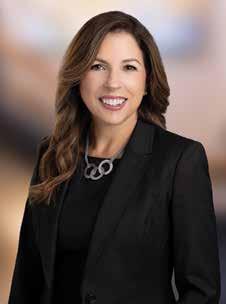
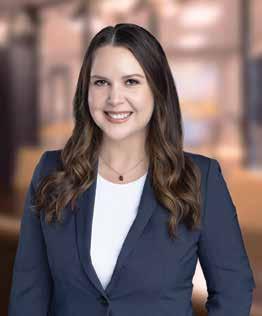
to excellence in
Recognized “Best of 2024 for Family Law in Dallas/Fort Worth and Austin” by Texas Lawyer.




Thomas Ausley*, Kelly Caperton Fischer, Rob Frazer*, Kelly Ausley-Flores*, Lindley Bain*, Eric Robertson*, Angelica Rolong Cormier, Kristen Algert*, Kristiana Butler, Emily Ogden , Carlos Gracia *Board Certified in Family Law by the Texas Board of Legal Specialization
Excellence is a constant pursuit at Goranson Bain Ausley, where our lawyers continuously hone their skills and expand their capabilities to secure clients’ futures. Our Austin team includes a mental health counselor, six certified mediators, two certified arbitrators, seven trained collaborative divorce lawyers, and six family law attorneys Board Certified by the Texas Board of Legal Specialization. Recognized by Texas Lawyer as “Best of 2024 for Family Law in Austin” for the fourth consecutive year, we’re proud to have earned the trust of our community.
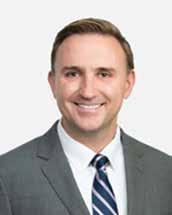
Jason LaFond is a board-certified appellate lawyer with significant experience in the Fifth Circuit. He is Counsel at Scott Douglass & McConnico LLP.
The following are summaries of selected civil opinions issued by the Fifth Circuit in October 2024. The summaries are overviews of particular aspects of the opinions; please review the entire opinions.
tires included federal excise taxes, but the IRS later determined that no such taxes had been paid. The IRS found that Texas Truck, not the manufacturers, was the “importer” under a tire-tax provision and, therefore, owed unpaid excise taxes. The district court ruled in favor of Texas Truck, determining that the Chinese manufacturers were the importers, not Texas Truck. The Fifth Circuit reversed.
The tax statute imposes a levy on the sale of taxable tires by the “manufacturer, producer, or importer.” In turn, a Treasury Regulation provides a two-part definition of “importer”: (1) the entity that “brings” a taxable article into the United States, or (2) the “beneficial owner” of the article, if the “nominal importer” is merely acting on behalf of another.
The Fifth Circuit concluded that the district court erred by focusing solely on whether Texas Truck physically “brought” the tires into the United States without considering whether Texas Truck was the “beneficial owner” under the Treasury regulation.
of “beneficial” and “beneficial interest” when Treasury promulgated the regulation points to the entity who induced and will derive almost all of the future benefits from a transaction. For the importation here, that was Texas Truck, not the Chinese manufacturers.
DISCOVERY: Requests for identities of defendant’s donors were likely disproportionate to the needs of plaintiff’s business torts claims.
X Corp. v. Media Matters for Am., No. 24-10900, 2024 WL 4527047 (5th Cir. Oct. 20, 2024).
X Corp. sued Media Matters, alleging Media Matters “knowingly and maliciously” manipulated images to “portray X Corp. as a social media platform dominated by neo-Nazism and antiSemitism,” which “alienate[d] major advertisers, publishers, and users from X.”
Media Matters appealed under the collateral order doctrine and moved for a stay, which the Fifth Circuit granted.
The Fifth Circuit declined to reach the waiver question, instead holding that Media Matters was likely to succeed because the requests for donor identifying information are not proportional to the needs of the case as Federal Rule of Civil Procedure 26 requires.
One request seeks the identity of all of Media Matters’ donors, including their residences, donation amounts, and times of donation. The Court found that many of these details are not directly relevant to X Corp.’s claims while risking harassment of donors. And the other requests, while seeking directly relevant information, still included unnecessary demands for the identities of donors.
TAX: Ordering taxable articles to be shipped to the United States for resale makes one an “importer” under the Internal Revenue Code.
Tex. Truck Parts & Tire, Inc. v. United States, 118 F.4th 687 (5th Cir. 2024).
Texas Truck bought tires from Chinese manufacturers, who shipped them directly to Texas Truck. The manufacturers represented that their quotes for the
The Court agreed that “brings” is limited to the physical act of transporting a tangible item. The government unsuccessfully argued that “brings” includes merely causing the importation. That broader reading, the Court explained, would render other Treasury rules superfluous.
But the Court found that Texas Trucks was the beneficial owner of the tires, and so falls within the second sentence of the definition of “importer.” The Court reasoned that the ordinary meaning

In discovery, X Corp. requested that Media Matters produce the identity of donors, their addresses, and its communications with them. Media Matters opposed on First Amendment grounds. The district court deferred ruling and ordered Media Matters to identify responsive documents, log them as privileged, and to hand over a privilege log to X Corp.
For certain requests, however, Media Matters neither searched for nor logged responsive documents. The district court ordered Media Matters to produce all responsive documents, finding that Media Matters’ intransigence waived its First Amendment privilege.
The Fifth Circuit said that the district court’s refusal to enter a protective order heightened these risks and thus weighed further against disclosure. The district court favored a private agreement between the parties. But the Fifth Circuit said a court order backed by courts’ coercive power was more appropriate. AL


Laurie Ratliff is a former staff attorney for the Third Court of Appeals. She is board-certified in civil appellate law by the Texas Board of Legal Specialization and owner of Laurie Ratliff LLC.
The following are summaries of selected civil opinions issued by the Third Court of Appeals during October 2024. The summaries are an overview; please review the entire opinion. Subsequent histories are current as of November 11, 2024.
established that the decree was signed during the COVID pandemic while she worked on commission in furniture sales when sales were very high. After the pandemic subsided, sales greatly decreased, and mother’s income dropped significantly. The court of appeals rejected father’s argument that to support a modification, mother must present evidence of her income at the time of divorce to show a material and substantial change in circumstances. The court concluded that mother’s evidence of a significant decrease in income allowed the trial court to meaningfully compare movant’s financial circumstances when the decree was signed with her current situation. The court affirmed.
Court reverses attorney-fee award for failure to request a jury question on fees.
Allstate Fire & Cas. Ins. v. Harper, No. 03-23-00635-CV (Tex. App.— Austin Oct. 25, 2024, no pet. h.).
not conclusively established and no element of which is submitted or requested are waived. Contrary to Harper’s argument, there was no bench trial on attorney’s fees. Thus, the reasonableness and necessity of attorney’s fees were questions for the jury. Accordingly, Harper waived her right to attorney’s fees. The court of appeals reversed and rendered.
TRIAL PROCEDURE: Court reverses default judgment for failure to comply with substitute-service order.
Mohle v. Mohle, No. 03-24-00061CV (Tex. App.—Austin Oct. 30, 2024, no pet. h.) (mem. op.).
TRIAL PROCEDURE: Court reverses failure to award attorney’s fees with a mandatory statute.
Stevenson v. Sullivan, No. 03-2200673-CV (Tex. App.—Austin Oct. 31, 2024, no pet. h.) (mem. op.).
FAMILY LAW: Court affirms modification ordering child support.
Doyle v. Doyle, No. 03-22-00691CV (Tex. App.—Austin Oct. 11, 2024, no pet. h.) (mem. op.).
The trial court granted mother’s request to modify the parties’ divorce decree that did not order child support and ordered father to pay child support. Mother
Harper sued Allstate for uninsured motorist benefits and sought attorney’s fees under the UDJA. Harper did not present evidence of attorney’s fees or submit a jury question on fees. Following a favorable verdict, the trial court granted Harper’s motion for judgment requesting $60k in attorney’s fees. Allstate argued that Harper waived any claim for attorney’s fees under Rule 279 by failing to request a jury question on fees. Rule 279 provides for grounds of recovery


“Information
is power, the not knowing is devastating.”
Fred sued Michael for partition of property they jointly owned. The trial court granted Fred’s request for substituted service and ordered service by: 1) certified mail return receipt requested; 2) posting on Michael’s front door; and 3) firstclass mail. The court ordered that the return of service must comply with Rule 107 but did not require Michael’s signature. The return of service did not contain the return receipt. The trial court granted a no-answer default judgment. The court of appeals observed that Rule 107 requires that when service is by certified mail, the process server must attach the return receipt even if the substitute-service order does not require defendant’s signature. Accordingly, the court held that without the return receipt, service was not in strict compliance with the order and could not support a default judgment. The court reversed and remanded.
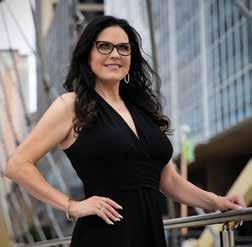
In a dispute over an easement, because Sullivan prevailed on more issues than Stevenson, the trial court awarded him $25k as UDJA fees. Sullivan challenged the amount of UDJA fees and the failure to award additional fees for his successful Property-Code claims. The court of appeals observed the different standards for the two attorney’s-fees provisions. The UDJA’s “the court may award” fees as are equitable and just is discretionary. Property Code Section 5.006(a)’s “the court shall allow” fees to the prevailing party is mandatory. The court found no abuse of discretion with the UDJA-fee award but concluded the trial court erred in failing to award Sullivan fees for his Property-Code claims. The court affirmed in part, reversed and remanded for a determination of attorney’s fees for the Property-Code claims. AL



The following is a summary of selected criminal opinions issued by the Third Court of Appeals from May 2024. The summary is an overview; please review the entire opinions. The subsequent history is current as of November 5, 2024.
Prior abuse allegations and testimony as to truthfulness. Trial court did not abuse its discretion by prohibiting cross-examination of victim regarding prior abuse allegations but abused its discretion by allowing police officer to testify that she believed victim was telling the truth.
Tharp v. State, ___ S.W.3d ___, No. 03-23-00102-CR (Tex. App.— Austin 2024, no pet.) (op., designated for publication). Tharp was convicted of the offense of indecency with a child. Two of his issues on appeal involved the admissibility of evidence. First, Tharp argued that the trial court erred by prohibiting him from cross-examining the victim about “prior false and incredible allegations of abuse.” The appellate court disagreed. The court first discussed how the evidence was inadmissible under the Rules of Evidence, specifically Rules 401, 403, 404(b), and 608(b). The court also rejected Tharp’s contention that the exclusion of the evidence violated
his constitutional confrontation rights. The court explained that in deciding this issue, it was “necessary to balance the probative value of the evidence sought to be introduced against the risk that its admission may entail,” and “the trial court reasonably could have determined that the probative value of the prior allegations was minimal” and that the admission of the evidence “would have been unduly prejudicial, would have required a significant amount of time to develop, and carried the additional substantial risk of confusing the jury.”
Tharp next argued that the trial court abused its discretion by allowing the police officer who interviewed the victim to testify that she did not think that the victim would “be able to maintain a lie.” The appellate court agreed that this was improper. The court explained that “[n]either expert witnesses nor lay witnesses may testify to the truthfulness of a witness’s testimony,” and “[b]y expressing her opinion that [the victim] was not fabricating her allegations,” the officer “provided an inadmissible opinion as to [the victim’s] truthfulness.”
The court rejected the State’s contention that the testimony was proper because Tharp “opened the door” to this testimony through its cross-examination of the officer and created a false impression regarding the victim’s truthfulness. The court explained that there was no false impression “that needed correcting,” and the State’s subsequent questioning of the officer “just elicited additional evidence that [the victim] was truthful.” However, the court further concluded that the error was harmless given the circumstances of the case, “particularly the existence of unobjected-to testimony from [the officer] more directly commenting on [the victim’s] truthfulness concerning the allegations.” After modifying the judgment to delete an unauthorized fee that was assessed against Tharp, the court affirmed the conviction.
DEFENDANT’S RIGHT TO TESTIFY — Comments by trial court to defendant regarding
exercise of right. Trial court’s comments to defendant advising him against testifying were not coercive.
Jones v. State, 691 S.W.3d 231 (Tex. App.—Austin 2024, pet. ref’d) Jones was convicted of the offense of assault on a public servant. During trial, the trial court had a “lengthy discussion” with Jones and his attorney advising Jones against testifying. Jones later waived his right to testify.
On appeal, Jones argued, among other things, “that the trial court’s comments to him about whether he should testify infringed his constitutional right to testify and meant that any waiver of the right was not voluntary.”
This was an issue of first impression for the appellate court. Based on its review of cases from other federal and state jurisdictions, the court decided that the issue “should be reviewed for whether the trial court’s comments coerced the defendant into not testifying.” The court then concluded
that the trial court’s comments in this case “did not coerce Jones out of testifying.”
The court explained that Jones had been “equivocal” regarding his exercise of the right, and after he answered unequivocally that he would not testify, “the court did not comment further.” The appellate court also found it “significant that the court gave Jones ample opportunity to confer with his attorney, including at intervening breaks in the trial and—especially—after the court had finished its commentary.” Moreover, the court concluded that Jones’s responses to the court’s comments demonstrated that the trial court’s statements “did not cause Jones’s personal will to be overborne.”
In a separate opinion dissenting to the denial of en banc consideration, Justice Triana concluded that the trial court’s comments rose to the level of coercion and, consequently, that the waiver of Jones’s right to testify was involuntary, entitling him to a new trial. AL


BY VELVA PRICE, TRAVIS COUNTY DISTRICT CLERK
Editor’s Note: The monthly jury trial verdicts update is first published through Bar Code and the Austin Bar app. Download the app today on either the App Store or the Google Play Store.
5005 SSR LLC v. Laszlo Herczeg
Cause No: D-1-GN-19-002982
Judge: Daniella Desetta Lyttle, 261st Civil District Court
Dates: October 8 - 10, 2024
Attorneys:
Plaintiff: Michael Smith, The Fowler Law Firm PC
Defendant: Self Represented Case Summary: Plaintiff claims that the Defendant’s actions interfered with the Plaintiff’s ability to improve its property resulting in damage to the Plaintiff. A unanimous jury found that the Defendant interfered with the Plaintiff’s ability to use the easement despite having a written document creating the easement which provided the Plaintiff the right to work or improve the road. Further the jury found that the Plaintiff incurred $125,000 in attorneys’ fees.
Ashley Gallardo et. al. v. City of Austin et. al. Cause No: D-1-GN-21-005772
Judge: Jessica Mangrum, 200th Civil District Court
Dates: October 7 - 9, 2024
Attorneys:
Plaintiffs: J. Luke Dow, Dow Law Firm, PLLC
Defendant: Elissa Hogan, City of Austin Law Department Case Summary: Plaintiffs claim that an Austin/Travis County EMS vehicle hit the back of the Plaintiffs vehicle causing damage and injury. A unanimous jury of 11 awarded the following damages: Ashley Gallardo - past physical pain and mental anguish - $120,000; future physical pain and mental anguish- $25,000; fu-
ture medical care expenses
- $20,000; past disfigurement - $10,000; future disfigurement
- $0; past physical impairment - $120,000; future physical impairment - $125,000; Brittaney Gallardo – past physical pain and mental anguish- $70,000; future physical pain and mental anguish - $40,000; future medical care expenses - $20,000; past disfigurement - $0; future disfigurement - $0; past physical impairment - $35,000; future physical impairment - $40,000.
In The Interest of L.L.T.H., A Child
Cause No: D-1-FM-23-008574
Judge: Maya Guerra Gamble, 459th Civil District Court
Dates: Oct. 21 - 24, 2024
Attorneys:
Petitioner: Brian Walters, Walters Gilbreath, PLLC
Respondent: Courtney Hatchett, Law Office of Courtney Hatchett
Ad Litem: Sherita Lynch, Advocate for All, LLC
Case Summary: Petitioner father filed the Original Petition in Suit affecting the parent-child relationship. Respondent mother filed counter-petition. A unanimous jury awarded exclusive right to designate the primary residence of the child to the Respondent mother.
In The Interest of L.D., A Child Cause No: D-1-FM-21-006301
Judge: Maria Cantu Hexsel, 53rd Civil District Court
Dates: Oct. 22 - 25, 2024
Attorneys:
Petitioner: David Kazen, Law Office of David A. Kazen, PLLC
Respondent: Christopher M, Kirker, Kirker Davis LLP
Case Summary: A unanimous jury found that the joint managing conservatorship should continue and not be replaced with one of the parents as sole managing conservator.
State of Texas v. Christopher Taylor Cause No: D-1-DC-19-900111
Judge: Dayna Blazey, 167th Criminal District Court
Dates: Sept. 23 – Oct. 5, 2024
Attorneys:
State of Texas: Rod Drummond
Defendant: Ken Ervi Case Summary: The amended indictment claimed that Christopher Taylor, a police officer intentionally caused the death/serious bodily injury of Mauris Desliva and discharged a firearm in the direction of Mauris Desliva. The jury found the Defendant guilty of the offense of Deadly conduct as stated in the indictment. [Sentencing phase is in process]
State of Texas v. Ahmed Al-Khazaali Cause No: D-1-DC-24-904075
Judge: Brandy Mueller, 403rd Criminal District Court
Dates: Oct. 7 - 11, 2024
Attorneys:
State of Texas: Dominic Selvera
Defendant: David Deblanc Case Summary: Defendant was indicted for aggravated robbery, deadly conduct by discharging a firearm. The Court sentenced the Defendant of 10 years at TDCJ.
State of Texas v. Kyle Powers Cause No: D-1-DC-21-301914
Judge: Brenda Kennedy
Dates: Oct. 14 - 17, 2024
Attorneys:
State of Texas: Jamie Liu
Defendant: Christoper Perri Case Summary: Defendant was indicted for sexual assault. A mistrial was declared due to a hung jury.
State of Texas v. Darion Gates Cause No: D-1-DC-23-202459
Judge: Selena Alvarenga, 460th Criminal District Court Dates: Oct. 14 - 16, 2024
Attorneys:
State of Texas: Faisal Sheikh Defendant: Michael Watson Case Summary: Defendant was indicted for the offense of Aggravated Assault with a Deadly Weapon. The jury found the Defendant guilty and sentenced him to 2 years.
State of Texas v. Christopher McDavid Cause No: D-1-DC-24-904089
Judge: Brandy Mueller, 403rd Criminal District Court
Dates: October 21 - 24, 2024
Attorneys:
State of Texas: Dominic Selvera Defendant: Jesus Gabriel Hernandez Case Summary: Defendant was indicted for aggravated assault with a deadly weapon and unlawful possession of a firearm by a felon. The jury found the Defendant not guilty of the charge of aggravated assault with a deadly weapon. The Defendant was found guilty of the charge of unlawful possession of a firearm by a felon and the jury sentenced the Defendant to 9 years in TDCJ.
State of Texas v. Steven Bryant Cause No: D-1-DC-23-301060
Judge: Melissa Goodwin Dates: Oct. 28 - 31, 2024
Attorneys:
State of Texas: Brandy Gann Defendant: Michael Watson Case Summary: The indictment stated that on or about March 18, 2023, the Defendant did knowingly cause the death of Barry Charles Dockery by shooting the victim with a firearm. The jury found the Defendant guilty of Murder. Defendant was sentenced to 40 years. AL
The Supreme Court of Texas convened Oct. 29-31, 2024, and heard oral arguments from several Austin Bar members.

Austin Bar Member
Wallace B. Jefferson
Alexander Dubose & Jefferson for Respondents
Myers-Woodward, LLC v. Underground Servs. Markham, LLC,
Oil & Gas – Royalty Payments
This case raises questions of who owns the right to use underground salt caverns created through the salt-extraction process and how a salt royalty interest is calculated.
USM owns the mineral estate of the property at issue, together with rights of ingress and egress for the purpose of mining salt. Myers owns the surface estate and a 1/8 nonparticipating royalty in the minerals. USM sued Myers, seeking declaratory relief regarding the royalty’s calculation and the right to use the underground salt caverns, in which it stored hydrocarbons. Myers countersued, seeking, among other things, a declaration that USM cannot use the subsurface to store hydrocarbons. The parties filed competing summary-judgment motions.
The trial court granted USM’s motion in part, declaring USM the owner of the subsurface caverns, and granted Myers’s motion in part, holding USM may only use the caverns for the purposes specified in the deed, effectively denying USM the right to use the salt caverns for storing hydrocarbons. The trial court then held that Myers’s royalty is based on the market value of the salt at the point of production, and it entered a take-nothing judgment on Myers’s remaining claims. Both parties appealed.
The court of appeals reversed the judgment declaring that USM owns the subsurface caverns and rendered judgment that they belong to Myers. The court expressly declined to follow Mapco, Inc. v. Carter, 808 S.W.2d 262, 278 (Tex. App.—Beaumont 1991), rev’d in part on other grounds, 817 S.W.2d 686 (Tex. 1991) (per curiam) (holding that the salt owner owns and is entitled to compensation for the use of an underground storage cavern), holding instead that most authority in Texas requires a conclusion that the surface estate owner owns the subsurface. It affirmed the remainder of the judgment, including the holding that the Myers’s royalty interest is 1/8 of the market value of USM’s salt production at the wellhead.
Both Myers and USM petitioned for review, raising issues regarding the calculation of Myers’s royalty interest and the ownership of the caverns. The Supreme Court granted both petitions.
Case documents can be viewed at https://search.txcourts.gov/Case. aspx?cn=22-0878&coa=cossup
The recording of this argument can be found on YouTube at https://www.youtube.com/ watch?v=o3d_DexC3P4

Austin Bar Member Marshall A. Bowen
Butler Snow appointed amicus counsel to defend the Court of Appeals’ judgment
Stary v. Ethridge
This case concerns the proper burden of proof to support a permanent protective order that prohibits contact between a parent and minor child.
Christine Stary and Brady Ethridge divorced in May 2018. In March 2020, Ethridge filed an application for a protective order, alleging that Stary had committed acts of family violence and abuse against their children, including an arrest for third-degree felony offense of injury to a child. The trial court granted the protective order, prohibiting Stary from having any contact with the children, stating that the order would remain in effect “in permanent duration for [Stary’s] lifetime” subject to the children filing a motion to modify the order.
Stary appealed, and the court of appeals affirmed. It held that the “permanent” protective order did not effectively terminate Stary’s parental rights, and, thus, due process did not require application of the “clear and convincing evidence” standard of proof; that the evidence is legally and factually sufficient to support the order; and that the trial court’s exclusion of Ethridge’s history of domestic violence was not reversible error.
Stary petitioned for review, arguing that due process requires a heightened standard of proof and that the evidence adduced does not rise to that level. The Supreme Court granted the petition. Case documents can be viewed at https://search.txcourts.gov/ Case.aspx?cn=23-0067&coa=cossup
The recording of this argument can be found on YouTube at https://www.youtube.com/ watch?v=o3d_DexC3P4


GEO Grp., Inc. v. Hegar LLC
The issue is whether companies that own and operate correctional and detention facilities qualify for a sales-tax exemption under state law. During the relevant tax period, GEO operated correctional and detention facilities in Texas under contracts with both the State of Texas and the United States, providing services such as housing, feeding, monitoring, and transporting detainees held in government custody. The Comptroller later audited GEO’s payment of sales and use tax for the relevant period and assessed a deficiency. GEO requested redetermination, refunds, and audit reductions, but the Comptroller rejected GEO’s contention that certain purchases were exempt from taxation and denied the request. GEO then brought a taxpayer suit for refund.
In the trial court, the parties stipulated that GEO would be entitled to a refund of more than $3 million if it is an entity or organi-
zation eligible for exempt status under Rule 3.322(c) in Title 34 of the Administrative Code. So qualifying would then make GEO’s purchases eligible for the exemptions set forth in Section 151.309 of the Tax Code. Following a bench trial, the trial court rendered judgment that GEO is not entitled to the claimed refunds. The court of appeals affirmed.
GEO petitioned for review, arguing that the lower courts applied the wrong evidentiary standard and misconstrued the term “instrumentality” in Rule 3.322(c). The Supreme Court granted the petition.
Case documents can be viewed at https://search.txcourts.gov/Case. aspx?cn=23-0149&coa=cossup
The recording of this argument can be found on YouTube at https://www.youtube.com/ watch?v=_z7qQ-rNSww

Austin Bar Member
Lanora C. Pettit
Office of the Attorney General For Petitioners

Austin Bar Member
Amy Warr
Alexander Dubose & Jefferson For Respondents
Tex. Dep’t of Fam. & Protective Servs. v. Grassroots Leadership, Inc.
This case concerns the validity of an administrative rule governing immigration detention centers and the mootness and reviewability of the rule challenge. In 2014, U.S. Immigration and Customs Enforcement began to detain undocumented families with children at two immigration-detention centers in Texas.
But a federal court ruled that ICE violated a consent decree requiring detained minors to be placed in facilities with appropriate state childcare licenses. After the ruling, the Texas Department of Family and Protective Services promulgated Rule 748.7, establishing licensing requirements for family residential centers.
The advocacy group Grassroots Leadership, several detained mothers, and a daycare operator sued the Department to challenge Rule 748.7. The private operators of the two detention centers intervened. After the trial court declared the rule invalid, the court of appeals dismissed
the case for lack of standing. The Supreme Court reversed and remanded, holding that the detained mothers (and their children) sufficiently alleged concrete personal injuries traceable to the rule’s adoption.
On remand, the Department and private operators argued that the dispute is now moot because the plaintiff–detainees are no longer detained and are not reasonably likely to be detained at the centers again. The court of appeals agreed but applied a publicinterest exception to the mootness doctrine and affirmed the trial court’s judgment that Rule 748.7 is invalid because the

Department lacked statutory authority to promulgate it.
The Department and the private operators petitioned for review, arguing that the rule challenge is moot, there is no publicinterest exception in Texas, and Rule 748.7 is valid. The Supreme Court granted the Department’s and the private operators’ petitions for review.
Case documents can be viewed at https://search.txcourts.gov/ Case.aspx?cn=23-0192&coa=cossup
The recording of this argument can be found on YouTube at https://www.youtube.com/ watch?v=Z1zCTvxjsLI AL


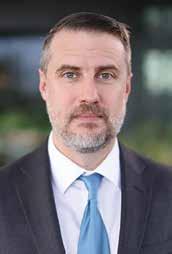
In its 2023 National Survey on Drug Use and Health, the Substance Abuse and Mental Health Services Administration (SAMHSA) estimated approximately 48.5 million people in the United States age 12 or older met the diagnostic criteria for a substance use disorder at some point during that year. This represented approximately 17.1 percent of all persons 12 or older. The same survey estimated 14.6 million adults, representing 5.7 percent of all adults, suffered from some form of serious mental illness in 2023.1
If not properly treated a professional’s substance abuse and/ or mental illness can result in impairment, which is generally defined as the loss of some or all of one’s physical or mental abilities.2
Impairment invariably impacts a professional’s work product and can raise serious concerns about their ability to practice their profession safely. In the case of health care professionals, these risks are further heightened by easy access to controlled substances and the vulnerability of patients to mistakes and substandard care.
Given their mission to protect the public, administrative licensing agencies have an interest in preventing impaired professionals from working without assurance that the professional can safely do so. This usually involves intervention of some kind and monitoring. Most Texas licensing agencies have formulated policies for addressing impaired
licensees. These policies generally recognize that mental illness and substance abuse are medical diagnoses, not the result of individual moral failure, which can be treated effectively through appropriate medical interventions. To this end, many licensing agencies have established peer assistance programs to promote confidential resolution of complaints involving impaired professionals through these alternatives to discipline programs rather than through the traditional disciplinary process.
Attorneys who represent licensed professionals will almost certainly have occasion to defend an impaired, or potentially impaired, client. It has been my experience that representing such clients can be both the most rewarding and discouraging part of my law practice. There are few other settings where a practitioner has such an opportunity to make a positive and lasting impact on a client’s life. There are also few other settings where your representation and interactions with a client can be so challenging and frustrating. While this article addresses impaired professionals specifically, these guidelines will be helpful in any law practice setting where the client is or may be impaired.
Best Practices When Representing an Impaired Professional Educate Yourself About Substance Abuse/Mental Illness
BY BETTY SMITH & DAN LYPE, Lype, Dest & Smith, PLLC
As in any law practice setting, it is incumbent on the attorney to be familiar the issues the client is dealing with. An attorney representing impaired professionals should ensure they have at least a decent working knowledge of substance abuse and mental illness. Your effectiveness as the client’s advocate will in part depend on your familiarity with these conditions and how they are diagnosed and treated.
With licensed professionals, it is also critical to educate yourself about their licensing board’s statutes, rules, and policies towards impaired professionals. For example, the attorney must know if the board has an official peer assistance program and, if so, whether it might be an option for the client to confidentially self-refer to that program rather than face public board discipline.
Potential Client Interview –is the potential client impaired?
While critical when representing any client, the value of a thorough client interview is heightened when representing an impaired or potentially impaired client.
It is important in the initial interview to try and decide for yourself if the client is impaired based on the facts available to you at that time. In some instances, it will be abundantly clear, and the potential client may even readily admit they have a problem. Unfortunately, there will also be situations where the answer is not as apparent.
At this early juncture, you may not have enough information to form a reasoned opinion about the potential client’s impairment or lack thereof, since the potential client is likely your only source of information. It is important to remember that with substance abuse/serious mental illness, it is
common for the afflicted person to withhold key information and/ or lack sufficient self-awareness about whether they are impaired. Counsel must keep in mind their professional limitations: We are not health care professionals and are not qualified to make what is ultimately a medical diagnosis. In most professional licensing cases, the final diagnosis will be made, and should be made, by an appropriate expert. Despite these limitations, the practitioner should do their best to arrive at a preliminary assessment during this initial encounter. Common lines of inquiry might include:
• What is the likely source of the complaint of possible impairment?
• What are the substances involved and frequency/typical circumstances of use?
• Have you ever gone to work while impaired?
• Have you ever taken medications from work?
• Have you ever been diagnosed or received any kind of treatment?
• Have you ever attended AA or other support group meetings?
• Do you have any criminal history related to drugs, alcohol, or mental illness?
• What medications are you currently prescribed and/ or were prescribed to you when the event in question occurred?
• Would you agree to submit to a drug/alcohol screen?
The most important question to ask the potential client during this process is whether they think they have a problem. This should be followed-up by asking how they think their spouse/significant other, family members, and/or work colleagues would answer the same question.
The Importance of Building Trust
Trust is vital in any attorney-client relationship. If a client does not have faith that their attorney has their best interests at heart, the attorney should not expect them to follow their advice. This makes it even more important for the attorney to interact with the client in a supportive and non-judgmental way. The client needs to understand you are not going to judge or devalue them for bad behavior or poor decisions.
Additionally, clients accused of being impaired are likely going through a very difficult time in their lives. They often feel as though both their personal and professional lives are disintegrating around them, leaving them feeling isolated and under assault from all sides. They may feel as though their competence and worth as a professional and human are being called into question. To make matters worse, their normal sources of support, such as their spouse or friends, may have cut ties with the client over their behavior.
Besides being supportive and non-judgmental, building trust is accomplished by communicating candidly with the client and being available to talk or answer their questions. It is also important to be transparent with the client and to give them tough advice if warranted. This can include recommending the client independently seeking intervention and treatment if it becomes clear that they do suffer from some form of impairment.
Oftentimes, an impaired client will be faced with an immediate problem that you can successfully resolve without ever addressing their underlying impairment. As an example, this could include a physician before their board with a benign standard of care complaint but who also appears to suffer from an untreated alcohol use disorder.
While it is likely the client’s immediate interests are best served by focusing exclusively on the narrower standard of care issue, completely ignoring their impairment is not in their overall interest. If left untreated, the client’s mental illness or substance abuse disorder will almost certainly lead to additional and more serious problems as these are chronic conditions that tend to escalate over time.
In the scenario described above, the attorney likely has an ethical duty to have a frank discussion with the physician about their alcohol problem and the possible consequences of leaving it untreated. Different options such as a confidential referral to their board’s peer assistance program should be discussed. If nothing else, the client should be encouraged to seek independent treatment. Clients will react to this type of conversation in different ways, particularly if they view it as unsolicited, but it is a discussion you owe it to them to have.
Representing an impaired professional can be a uniquely rewarding experience. The knowledge that you have played a role in a
client’s path to treatment and recovery more than makes up for the immense frustration that can also accompany this type of case. Still, an attorney must be prepared for the special ethical dilemmas which commonly arise while representing impaired professionals. Many of these can be avoided by following basic good practices starting with your first encounter with the potential client.
Betty Smith and Dan Lype are both Partners with Lype, Dest & Smith, PLLC, in Austin. Betty was born and raised in Austin and has been practicing administrative law in Texas since 2017, after ten years in New Orleans. Her practice focuses on license defense for healthcare professionals, which includes guiding clients through initial and renewal licensure application processes, professional license complaints and investigations, and administrative mediations and hearings at the State Office of Administrative Hearings (SOAH). Born and raised in the Midwest, Dan fell in love with Texas while attending law school at UT Austin. His practice focuses on representing health care professionals and their businesses
before state and federal agencies. A large part of his practice is dedicated to pharmacy law and assisting pharmacies and pharmacists with the Texas State Board of Pharmacy, the DEA, Food and Drug Administration, Office of the Inspector General, and Pharmacy Benefit Managers. AL
1 “Highlights for the 2023 National Survey on Drug Use and Health,” Substance Abuse and Mental Health Services Administration, full report available at www.samsha.gov.
2 For purposes of this article, “impaired” and “impairment” will generally refer to both mental illness and substance abuse.
512-487-7994
hello@herlihy-law.com scottherlihylaw.com

Members of the Austin Bar Association’s Loving It Lawyers Club convened Oct. 29 at the Austin Club to celebrate attorneys who have been in practice for 50 years.
As part of this CLE event, Third Court of Appeals Justice
Karin Crump, Jennifer King of Kershaw Anderson King, and Laura Brown of the Brown Trial Firm gave a presentation on the Texas Lawyer’s Creed, which is celebrating its 35th anniversary.
The Fowler Law Firm generously underwrote all fees and lunch for the 50-year lawyers. AL

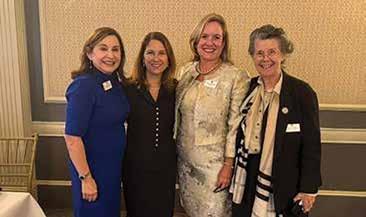



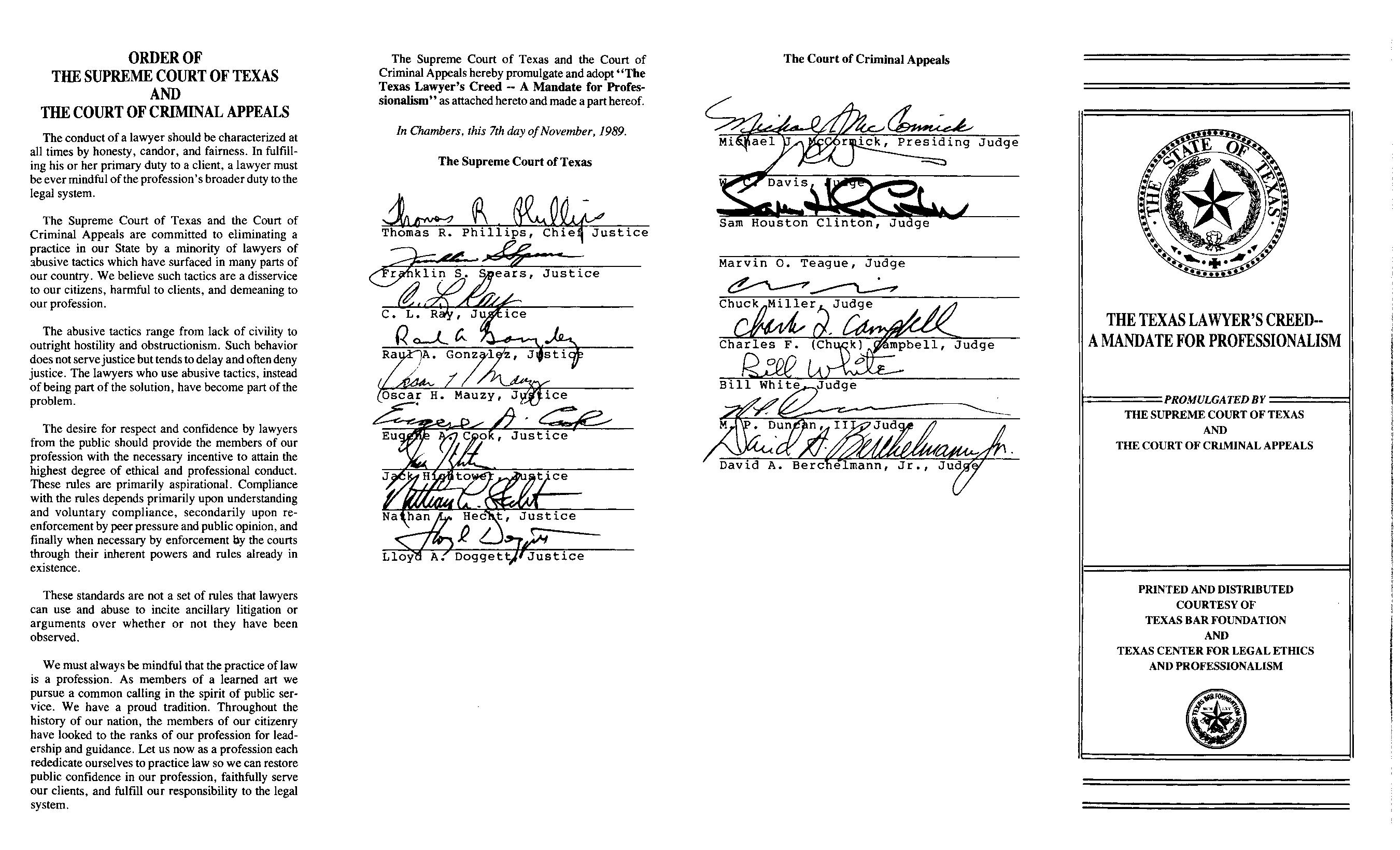
the highest principles of profes sionalism.
1. I am passionately proud of my profession. Therefore, “My word is my bond.”
2. I am responsible to assure that all persons have access to competent representation regardless of wealth or position in life.
3. I commit myself to an adequate and effective pro bono program.
4. I am obligated to educate my clients, the public, and other lawyers regarding the spirit and letter of this Creed.
5. I will always be conscious of my duty to the judicial system.
A lawyer owes to a client allegiance, learning, skill, and industry. A lawyer shall employ all appropriate means to protect and advance the client’s legitimate rights, claims, and objectives. A lawyer shall not be deterred by
is intended primarily to harass or drain the financial resources of the opposing party.
8. I will advise my client that we will not pursue tactics which are intended primarily for delay.
9. I will advise my client that we will not pursue any course of action which is without merit.
10. I will advise my client that I reserve the right to determine whether to grant accommodations to opposing counsel in all matters that do not adversely affect my client’s lawful objectives. A client has no right to instruct me to refuse reasonable requests made by other counsel.
11. I will advise my client regarding the availability of mediation, arbitration, and other alternative methods of resolving and settling disputes.
A lawyer owes to opposing counsel, in the conduct of legal
or other persons, as soon as prac ticable, when hearings, depositions, meetings, conferences o closings are cancelled.
6. I will agree to reasonable requests for extensions of time and for waiver of procedural formalities, provided legitimate objectives of my client will not be adversely affected.
7. I will not serve motions or pleadings in any manner that unfairly limits another party’s opportunity to respond.
8. I will attempt to resolve by agreement my objections to matters contained in pleadings and discovery requests and responses.
9. I can disagree without being disagreeable. I recognize that effective representation does not require antagonistic or obnoxious behavior. I will neither encourage nor knowingly permit my client or anyone under my control to do anything which would be unethical or improper if done by me.
cause, attribute bad motives or unethical conduct to opposing counsel nor bring the profession into disrepute by unfounded accusationsof impropriety. I will avoid disparaging personal remarks or acrimony towards opposing counsel, parties and witnesses. I will not be influenced by any ill feeling between clients. I will abstain from any allusion to personal peculiarities or idiosyncrasies of opposing counsel.
11. I will not take advantage, by causing any default or dismissal to be rendered, when I know the identity of an opposing counsel, without first inquiring about that counsel’s intention to proceed.
12. I will promptly submit orders to the Court. I will deliver copies to opposing counsel before or contemporaneously with submission to the Court. I Will promptly approve the form of orders which accurately reflect the substance of the rulings of the Court.
13. I will not attempt to gain an unfair advantage by sending the Court or its staff correspondence or copies of correspondence.
14. I will not arbitrarily schedule a deposition, court appearance, or hearing until a good faith effort has been made to schedule it by agreement.
15. I will readily stipulate to undisputed facts in order to avoid needless costs or inconvenience for any party.
16. I will refrain from excessive and abusive discovery.
17. I will comply with all reasonable discovery requests. I will not resist discovery requests which are not objectionable. I will not make objections nor give instructions to a witness for the purpose of delaying or obstructing the discovery process. I will encourage witnesses to respond to all deposition questions which are reasonably understandable. I will neither encourage nor permit my witness to quibble about words where their meaning is reasonably clear.
18. I will not seek Court intervention to obtain discovery which is clearly improper and not discoverable.
19. I will not seek sanctions or disqualification unless it is necessary for protection of my client’s lawful objectives or is fully justified by the circumstances.
Lawyers and judges owe each other respect, diligence, candor, punctuality, and protection against unjust and improper criticism and attack. Lawyers and judges are equally responsible to protect the dignity and independence of the Court and the profession.
l. I will always recognize that the position of judge is the symbol of both the judicial system and administration of justice. I will refrain from conduct that degrades this symbol.
2. I will conduct myself in Court in a professional manner and demonstrate my respect for the Court and the law.
3. I will treat counsel, opposing parties, the Court, and members of the Court staff with courtesy and civility.
4. I will be punctual.
5. I will not engage in any conduct which offends the dignity
and decorum of proceedings.
6. I will not knowingly misrepresent, mischaracterize, misquote or miscite facts or authorities to gain an advantage.
7. I will respect the rulings of the Court.
8. I will give the issues in controversy deliberate, impartial and studied analysis and consideration.
9. I will be considerate of the time constraints and pressures imposed upon the Court, Court staff and counsel in efforts to administer justice and resolve disputes.
The conduct of a lawyer should be characterized at all times by honesty, candor, and fairness. In fulfilling his or her primary duty to a client, a lawyer must be ever mindful of the profession’s broader duty to the legal system.
The Supreme Court of Texas and the Court of Criminal Appeals are committed to eliminating a practice in our State by a minority of lawyers of abusive tactics which have surfaced in many parts of our country. We believe such tactics are a disservice to our citizens, harmful to clients, and demeaning to our profession.
The abusive tactics range from lack of civility to outright hostility and obstructionism. Such behavior does not serve justice but tends to delay and often deny justice. The lawyers who use abusive tactics instead of being part of the solution have become part of the problem.
The desire for respect and confidence by lawyers from the public should provide the members of our profession with the necessary incentive to attain the highest degree of ethical and professional conduct. These rules are primarily aspirational. Compliance with the rules depends primarily upon understanding and voluntary compliance, secondarily upon re-enforcement by peer pressure and public opinion, and finally when necessary by enforcement by the courts through their inherent powers and rules already in existence.
These standards are not a set of rules that lawyers can use and abuse to incite ancillary litigation or arguments over whether or not they have been observed.
We must always be mindful that the practice of law is a profession. As members of a learned art we pursue a common calling in the spirit of public service. We have a proud tradition. Throughout the history of our nation, the members of our citizenry have looked to the ranks of our profession for leadership and guidance. Let us now as a profession each rededicate ourselves to practice law so we can restore public confidence in our profession, faithfully serve our clients, and fulfill our responsibility to the legal system.
The Supreme Court of Texas and the Court of Criminal Appeals hereby promulgate and adopt “The Texas Lawyer’s Creed - A Mandate for Professionalism” as attached hereto and made a part hereof.
In Chambers, this 7th day of November, 1989.
The Supreme Court of Texas
Thomas. R. Phillips
Chief Justice Justices
Franklin S. Spears
C. L. Ray
Raul A. Gonzales
Oscar H. Mauzy
Eugene A. Cook
Jack Hightower
Nathan L. Hecht
Lloyd A. Doggett
The Court of Criminal Appeals
Michael J. McCormick
Presiding Judge
W. C. Davis
Sam Houston Clinton
Marvin O. Teague
Chuck Miller
Charles F. (Chuck) Campbell
Bill White
M. P. Duncan, III
David A. Berchelmann, Jr.
Start a paralegal journey on your terms. UT Austin’s self-paced Paralegal Certificate Program provides in-depth training in essential legal areas, with enrollment available anytime.
Boost your legal career in just 5 months with our instructor-led program –perfect for aspiring paralegals.
Attend a free information session, or visit: professionaled.utexas.edu/s/paralegal
More than $10K raised in dual events that fund VLS of Central Texas, suicide prevention
Thank you to everyone who donated and/or came out to support equal access to justice in Central Texas and lawyer well-being on Saturday, Oct. 26!
We had two big events that day: One was the Pro Bono Fall Festival, held in conjunction with the Mother Attorney Mentors of Austin (MAMAs) to raise funds for Volunteer Legal Services (VLS) of Central Texas; and the second was the Out of the Darkness Community Walk to raise money for suicide prevention.
More than 50 people came out to enjoy the Pro Bono Fall Festival, which featured games, a dunk tank, an adult and child Halloween costume contest, and a magic show. We raised more than $8,000, which will be donated to VLS to provide legal services to those in poverty.
Thank you to our sponsors:
Great Pumpkin
• Baker Botts
• Barnett Garcia
• Beckstead Terry Ditto
• Civil Litigation Section of the Austin Bar
• FVF Law
• Ramos James Law
• Sanchez Law
• Harvest Moon
• Almanza, Blackburn, Dickie & Mitchell
• DLA Piper
• Lloyd Gosselink
• The Roarty Law Firm
• Rose Resolution Group
• Sara E. Saltmarsh
• Severn Law
• The Tomlinson Firm
• UFCU Legal Scarecrow
• Botkin Chiarello Calaf
• Carly Gallagher Murray
• Engleman Fallon
• The Haney Law Firm
• Hanna & Plaut
• Lucosky Brookman
• Ross Scalise Beeler and Pillischer
• Scott Douglass McConnico
• Solo/Small Firm Section of the Austin Bar
Candy Corn
• Lowell Keig
• Financial Institutions of the Austin Bar
And with special thanks to:
Music Water
Shiner Beers
Magician Dylan Love
Kara O’Shaughnessy
Hollie Toups
Mike Johnson
Sam Denton
Mary-Ellen King
Connie Ditto
The community walk was part of the national Out of the Darkness initiative of the American Foundation for Suicide Prevention (AFSP). Each community walk raises money for the AFSP to conduct outreach, education, and research on suicide prevention.
Our team walked in the memory of Trevor Taylor and Aspen Dunaway. Aspen died by suicide in October 2023, and Trevor in January 2017.
Thanks to our Austin Bar community, our team raised more than $3,700 – making 370 percent of the $1,000 goal we initially set!
Thank you to our donors and team members:
• Kourtney Benton
• Kimberly Bishop
• Michelle Fontenot
• Deborah Hensley
• Ross Hyde
• Austin Kaplan
• Beth Keig
• Lowell Keig
• Mary-Ellen King
• Melissa Pina
• Toni Rask
• Robert Rice
• Rachel Rutter
• Shannen Scott
• Rachel Seshan
• Michael Singley
• Gabrielle Smith
• Zoe Taylor
• Joel Teklu
• Abigail Ventress
• Sara June Walton
• Kennon Wooten


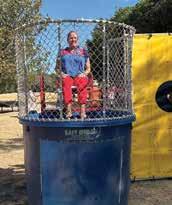




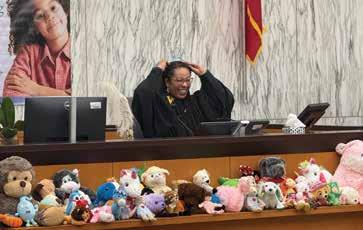

The Austin Bar Association cosponsored the 23rd annual Austin Adoption Day, where children were officially adopted into their forever families.
The event took place at the Travis County Civil and Family Courts Facility on Nov. 14. The adoption cases were heard by many of Travis County’s district judges.
There were 4,100 adoptions in Texas in 2023. Of those, 136 were in Travis County. Today, over 2,000 children are waiting for forever families. Of those 2,000, 63 percent are between the ages of 10 and 17.
The day was full of happy tears, love, laughter, and plenty of playful children running around the courtrooms filled with colorful stuffed animals.
Denise Hyde heads the Austin Bar’s Adoption Day Committee. The Austin Bar’s Family Law Section served as a cosponsor of the event.
Other Austin Adoption Day cosponsors included the Department of Family and Protective Services, the Travis County Office of Child Representation, CASA of Travis County, Kendra Scott, Whitestone Jewelry, Amy’s Ice Cream, Dignity Memorial, Ballet Austin, and CookWalden. AL





The Austin Bar Foundation and its Veterans’ Legal Assistance Program (VLAP) sincerely thanks attorney volunteer Stephanie Long for a generous contribution of $1,200 to VLAP!
This was no ordinary donation, however. Stephanie recently got married and, instead of asking for gifts, she and her husband asked for donations to their favorite causes. Stephanie very generously chose VLAP.






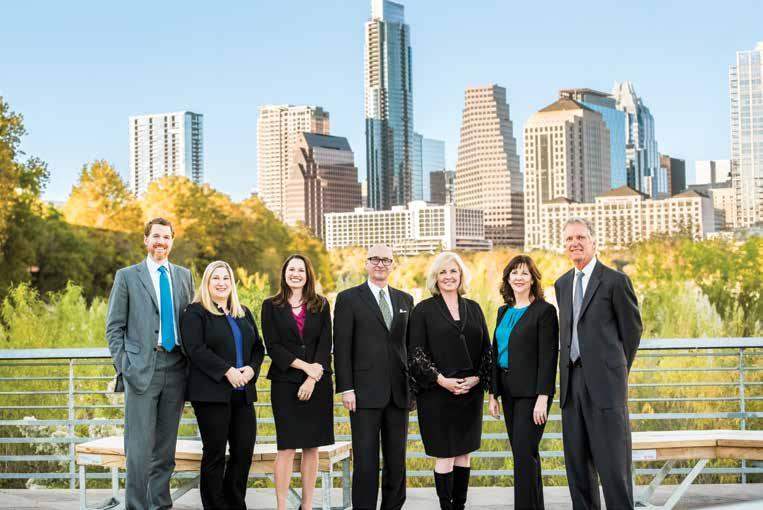
Thank you very much, Stephanie, for thinking of us on your special day!
Stephanie Long is an associate at Mike Massey Law, where she practices comprehensive estate planning. She is a graduate of the University of North Carolina School of Law and has been licensed in Texas since 2022. She is a long-time volunteer for VLAP, as well as CANLAW Clinics. CANLAW is a project of the Austin Bar Foundation that provides free estate-planning services for patients with stage IV cancer and their families. Congratulations on your wedding, Stephanie, and thank you for your dedication to pro bono work in our community! AL
partners:
associate attorneys:
Arielle Rosvall, Coleen Kinsler
If you are interested in running for a position as a director or officer of the Austin Bar Association, please fill out the form located at austinbar.org and email it to DeLaine Ward at delaine@austinbar.org by Jan. 31.
All candidates must be current attorneys and Austin Bar members in good standing.
Officer positions are one-year terms; director positions are for two years. Nominees for the office of president-elect must have served at least two years on the board of directors prior to assuming office.
The number of candidates to be nominated for each position shall be left to the discretion of a majority of the Nominating Committee. The Nominating Committee’s decision will be announced on or before March 15. Any qualified member not receiving the nomination of the committee may be included on the ballot by submitting a written petition signed by 75 members of the Austin Bar. Such petitions must be submitted by April 10.
Voting will run until 4 p.m. on May 1.
Voting on board positions will be conducted via electronic ballot. If you have any questions about the nomination or election process, please contact DeLaine Ward at delaine@austinbar.org; 512-472-0279 ext. 104.
Each board member is expected to actively support the Austin Bar’s mission, programs, and activities.
Each new board member is expected to participate in the formal board orientation activities and to become familiar with the Google docs related to the affairs of the Austin Bar. Additional information should be sought from the executive director or president as the year progresses, to ensure full participation in board deliberations.
Each Austin Bar board member is expected to attend the
Bench Bar Conference and the Austin Bar Foundation Gala. Additionally, each Austin Bar Board member is expected to assist in securing an item of $100 or more value for use in the silent auction at the gala.
Each Austin Bar board member is encouraged to support Volunteer Legal Services of Central Texas through financial and/or volunteer efforts and is expected to encourage other legal professionals to do so as well.
The board usually meets on the last Wednesday of each month from 5:30 to approximately 7:00 p.m. Occasionally, alternative dates are selected or additional sessions held. Attendance at these meetings is expected, and unexcused absences are grounds for removal. An absence is unexcused if not conveyed to and excused by the executive director and/ or Austin Bar president prior to the meeting. Directors, section chairs, and affiliate representa tives are welcome to attend exec utive committee meetings but are not required.
Executive committee meetings usually occur the Monday prior to the last Wednesday of each month from 12:00 to approximately 1:00 p.m. via Zoom.
Each Austin Bar board member is expected to serve as a member or chair of at least one Austin Bar committee and as a liaison to his/ her assigned Austin Bar sections. The president seeks board input when making these annual ap pointments.
Each Austin Bar board mem ber is expected to prepare for and participate in board and commit tee meetings, which includes be ing knowledgeable about related meeting agendas and materials, being prepared to develop and/or articulate Austin Bar Association policy, asking substantive ques tions, and/or suggesting agenda items on significant member or professional issues.
In order to participate in Board meetings, it is imperative that each Austin Bar board member

attend the entire meeting. Failure to arrive by 5:45 p.m., or before
cused absence.
Each Austin Bar board member
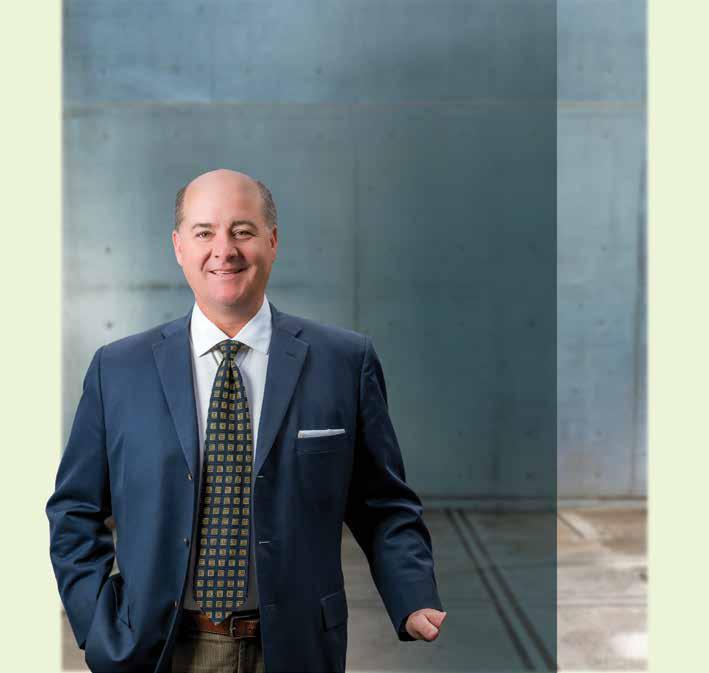

Texas has paid nearly $100 million to 95 men and women who were wrongfully convicted since 2009, according to a study conducted by criminal defense firm Michael & Associates in Austin.1
Records from the Texas State Comptroller’s Office also indicate the state pays a monthly annuity to each exoneree, totaling almost $500,000 per month.
The compensation is the result of the Tim Cole Act, which was enacted in 2009 and named after a Texas Tech University student who died in prison in 1999 while serving a 25-year sentence for a rape conviction. Cole was posthumously exonerated of the conviction by DNA evidence.
The Tim Cole Act requires that an exoneree be paid $80,000 per year of wrongful imprisonment, in addition to the monthly annuity.
The data from the comptroller’s office indicates that, between 2009 and 2024:
• 7 exonerees were paid between $6,000 and $100,000
• 20 were paid between $100,000 and $500,000
• 16 were paid between $500,000 and $1 million
• 27 were paid between $1 million and $1.5 million
• 12 were paid between $1.5 million and $2 million
• 13 were paid between $2 million and $2.5 million
The exoneree is also eligible for an additional $25,000 if, after being released from prison, he or she was wrongfully required to register as a sex offender, put on parole, or other restrictive conditions.
The monthly annuity is calculated using the lump sum figure an exoneree received plus five percent compounded interest divided by the exoneree’s life expectancy— estimated by actuaries from the Social Security Administration.
Currently:
• 15 exonerees receive no monthly annuity
• 12 receive less than $1,000 a month
• 17 receive between $1,000 and $4,000
• 19 receive between $4,000 and $7,000
• 16 receive between $7,000 and $11,000
• 11 receive between $11,000 and $14,000
• 5 receive more than $14,000
In 2015, Congress passed 26 U.S. Code § 139F, which exempted exoneree compensation from federal taxation.
The National Registry of Exonerations – a joint project of the University of California – Irvine’s Newkirk Center for Science & Society, University of Michigan Law School, and Michigan State University College of Law - estimates that Texas has the second-highest number of exonerations in the country at 486, while Illinois has 555.2
Texas’ exoneration compensation is also one of the most generous. The National Registry of Exonerations lists it at number three, with only Washington, D.C., and the State of Nevada ahead.
In Washington, D.C., exonerated individuals are paid lump sums of $200,000 per year of wrongful imprisonment.
Nevada provides $50,000 per year up to 10 years; $75,000 per year up to 20 years; and $100,000 per year for 21 or more years.3 AL
1 https://zealousadvocate.com/ resources/studies/wrongful-conviction-payments/
2 https://www.law.umich.edu/special/exoneration/Pages/Exonerations-in-the-United-States-Map.aspx
3 https://www.law.umich.edu/special/ exoneration/Documents/Compensation%20Chart_Version%202022%20 checked%20against%20Justice%20 Lab%20(1).pdf



Volunteer Legal Services of Central Texas is proud to announce the winners and honorees of its 2023 calendar-year awards and distinctions.
Abigail Griffith, an associate at Reichman Jorgensen Lehman & Feldberg, received the Susan P. Burton Award, which is given annually to a volunteer attorney who has been licensed for five years or less and who has provided exemplary pro bono service.
Adrianne Waddell, partner at Holland & Knight, received the J. Chrys Dougherty Award, which is given to an attorney for exemplary dedication to equal access to justice regardless of income.
Jackson Walker won the Joseph H. Hart Award, which recognizes a firm that demonstrates integrity and commitment to providing legal assistance to those less fortunate.
VLS also thanks the following individuals for their pro bono accomplishments in 2023:
Donated 100 or more hours in 2023
Abby Griffith
Abhinaya Prithivi
Adrianne Waddell
Ahimsa Hodari
Angela Marshall
Cindy Saiter
Deborah Sonnenschein
Diana Ball
Hannah Bell
Jean Byun
John Halbleib
Kannon Moore
Rafic Bittar
Richard O’Connell
Robert Kamm
Robert Zimmer
Sarah Lacey
Stacey McLarty
Tony Blazi
Closed 5 or more pro bono cases in 2023
Adrianne Waddell
Diana Ball
Doug Ray
Jack Skaggs
Kannon Moore
Kara O’Shaughnessy
Michael Roberts
Ralah Sanadiki
Richard Clark
Robert Kamm
Robert Zimmer
Tony Blazi
Tyler Hickle
Took part in 10 or more pro bono clinics in 2023
Abhinaya Prithivi
Abigail Griffith
Adam Hoskins
Alexander Sonnenschein
Celeste Rodriguez
Dan Fabian



DeBorah Sonnenschein
Destiny Harrison
Diana Ball
Fran Brochstein
Hannah Lanham
Jerry Kyle
Justin Floyd
Marc Katz
Katharine Weaver
Keith Maples
Kerry Bloodsaw
Maggie Cheu
Marianne Reat
Mary Margaret Steinle
BY CLAUDE DECLOUX
The opinions expressed in this article are those of the author and do not necessarily represent the views of the Austin Bar Association membership or the Austin Bar Association board of directors.
Consider the following three scenes:
SCENE ONE
Egypt, Giza Valley, Akehnaton’s apartment. 2500 BC. [A knock on the door, it’s Djoser, the chief stone architect of Pharoah Khafre’s pyramid]
Djoser: Akeh? You there? You were supposed to meet me at the base today to learn stone design.
Akehnaton: Do I really have to go? My cat is sick.
Djoser: You have missed every single meeting with the architects and the stone bearers. How do you expect to become a chief stone architect? There’s lots to learn. You need to know angles, weights, slave strength, positions.
Akehnaton: Hey, no problem, I can see the guys from here.
Djoser: Akeh, you must learn in person. You do want the mathematicians and slide engineers to know you, right?
Akehnaton: But look out the window. I am so close that I can hear the slaves being crushed from here. Look, how about I come in every Tuesday?
Djoser: How about Mondays, Wednesdays, and Fridays.
Akahnaton: Will you provide lunch?
Rome: 150 AD. [Marcus Stultus is applying to be a gladiator.]
Procurator: Okay Mr. Stultus, I’m reviewing your resume… Hmm, I don’t see any fighting experience.
Stultus: Oh, I have plenty. I’ve fought at least 20 guys.
Procurator: Really? Names? Places?
Stultus: Well, they weren’t real

people, but really, really lifelike drawings of mean gladiators.
Procurator: So, you fought paper gladiators?
Stultus: Uh huh. And beat every one of them.
Procurator: Sir, how come you didn’t train at the Academia Disciplina Pugnati?
Stultus: Well, you know it was WAY across town, and the traffic here in Rome is really bad. And if the Circus Maximus is in town, you can’t get anywhere near the Colosseum.
Colorado Springs, 2025, Brooklyn Vonn, a niece of Lindsey Vonn, is being interviewed by the U.S. Olympic Ski Coach.
Coach: So, Miss Vonn, it says here that you want to be an Olympic ski racer. Can you tell me what you’ve done so far?
Vonn: I have spent hours and hours on skiing, learning techniques, observing others, and I’m pretty sure I’ve nailed it.
Coach: Okay, how many races have you won? And where?
Vonn: Well, none yet, but I’m sure I can… I betcha I’ve watched a thousand YouTube videos on how to ski. It looks pretty easy. I think I’ll be able to nail it.
Coach: You’ve never… actually… skied?
Vonn: No. I hate the snow. It’s cold. But I’m sure I’ll know what I’m doing when I get some skis. Are there any, like, summer competitions?
Sigh.
So, clearly, I am worried about our post-covid affection for working “at distance.” Thinking back on my own training and experience, nothing helped me more than the steady, daily guidance and exposure to other practitioners. They encouraged, explained, they gave me critical feedback, and mentored me to seek justice and find my place in a difficult profession. And my experience is not unique.
For centuries of human history, and across all cultures, tradesmen, merchants, artisans, painters, and craftsmen learned their respective arts under the tutelage of senior minds. Nomenclature for those who successfully completed their apprenticeships, training or servitude programs were created over centuries, and bestowed upon them to give the public confidence that their artisan, technician or skilled worker was competent to undertake the assigned task. Terms like “journeyman” “master” and “guildsman” gave way, after the development of formal educational programs, to terms
like “licensed” and “certified.”
It is no accident of history that these programs continued across continents and cultures in various formal and informal customs, primarily to pass on the hard-earned knowledge of older professionals to a newer generation. Apprenticeships were valued and required, with many professions forming international requirements for mentored study before joining the professional guild, often precipitated by an examination of sorts by other master professionals.
Doctors throughout the world still ascribe in large measure to the benefits of internship, residency, and prolonged training. But so do plumbers, painters, electricians, engineers and architects.
As applied to the legal profession, the United States remains one of the few democratic jurisdictions that has generally abandoned the wisdom of generations: that studying under a competent expert professional is the best way to ensure your own success in our profession.
England, as well as most European countries like Denmark, Germany, Switzerland, Austria and France, still maintain flourishing requirements for clerkships and legal apprenticeships. To become a Barrister in England and Wales
requires not only schooling but two full years of “QWE” – qualifying work experience. Switzerland, at present, requires one year study in the courts or law firms before they are allowed to take the bar examination.
Moreover, just because in America, you may not be absolutely required to do a clerkship or mentorship, doesn’t mean you shouldn’t. In fact, doing a clerkship, or having a ready and available mentor is the most important element in creating a smooth transition to a successful law practice.
Law, like medicine, is rife with unexpected opportunities to observe and learn. And inexperience is no defense from liability if we breach our fiduciary duty.
There are many ways to err in the legal profession. Flawed Contracts could be unenforceable, and missing one of the ubiquitous deadlines of our profession is treacherous. Acknowledging that, the newly minted lawyers at the very highest levels of our profession generally seek clerkships, both private and governmental. Time spent there will never be wasted: learning about a system from its current managers will always serve them well in the future.
Yes, I already hear your pushback: It gels into two responses: “But we do meet and discuss things over video technology. It’s just as good.” And “We are able to use Artificial Intelligence to draft our correspondence, pleadings and demand letters. So there!”
My replies: First, the benefits of practicing among other experienced professionals will be the thousands of little things you see, learn, and ask about that you never planned to encounter or discuss. Because you didn’t know those lessons existed.
Secondly, never become dependent upon any technology. Writing is an art, and it is hard work. But your profession depends on your ability to communicate, craft persuasion, and articulate stories and emotions, and precise expectations in a palette of words. Never expect A.I., which often simply steals the words of others, to be your mouthpiece. It will inevitably embarrass you. Your own skilled writing will not. Keep the faith.
L



